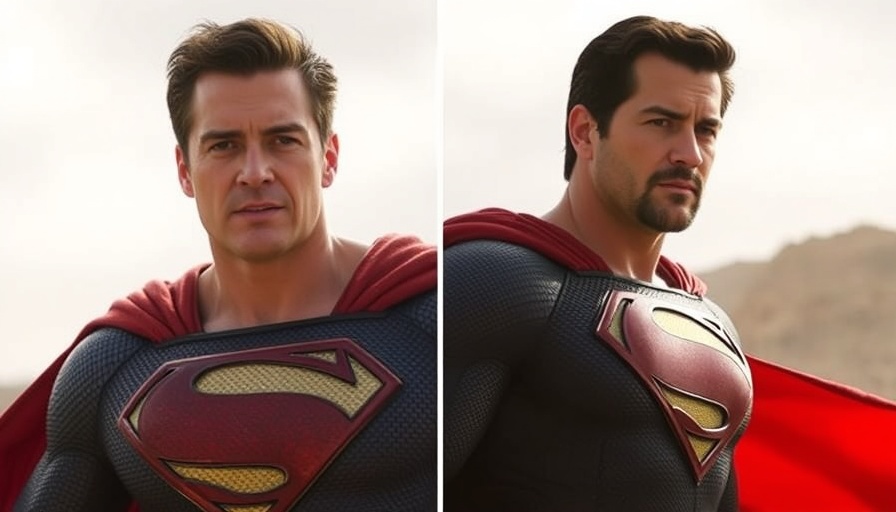
A Critical Look at Necaxa: A Novel Approach to Sports Documentaries
Eva Longoria's new documentary series, Necaxa, attempts to capture the essence of rejuvenating a declining football club in Mexico, drawing curious comparisons to the smash-hit Welcome to Wrexham. While the latter shot to fame through its unexpected heroes, Ryan Reynolds and Rob McElhenney, Longoria’s venture into the world of sports documentary lacks the captivating dynamics and emotional stakes that made the original so engaging.
Historical Context of Mexican Football
Club Necaxa once stood as a pinnacle of football in Mexico City, claiming national reverence until the early 2000s when mismanagement saw its decline. The club's relocation to Aguascalientes in 2003 was an effort to revitalize its fortunes, but the current lack of promotion and relegation in Mexican football makes victories feel less significant. Understanding this backdrop is crucial to appreciate the weight Longoria seems to place on her investment.
The Dangers of Celebrity Narratives
By casting herself as the sole lifeline to Necaxa, Longoria’s show risks falling into the celebrity trap. The focus on her personal aspirations overshadows the collective struggles of the club's players and staff. Her backstory—of growing up amidst a complex identity tied to both American and Mexican cultures—could have provided rich narrative material. However, it instead feels like a backdrop to her own journey rather than a connection with the fans and players of Necaxa.
Players as Real Heroes: A Missed Opportunity
Documentaries often thrive on personal stories that weave into the fabric of sport; however, Necaxa misses out on deeper explorations of its players’ lives. Down-to-earth experiences shared by the players—like aspiring to surpass their early limitations—could resonate widely with audiences. This narrative thread could parallel those observed in other culturally significant documentaries, enriching the series' emotional appeal.
The Volume of Laughs: Not Enough to Engage
A curious theme emerges in Longoria’s interactions with players and club officials: an attempt at humor that seems misplaced. While laughter can forge connections, its over-reliance for engagement falls flat. Viewers are unlikely to forge emotional ties when the protagonist's laughter fills the room without a basis of shared emotions or experiences.
Future of Sports Documentaries: Room for Improvement
As the landscape of sports documentaries evolves, Necaxa reflects on the trend of celebrity-led narratives attempting to emulate earlier successful formats. While the effort is evident, it speaks volumes about the importance of connection; without dramatic stakes or the stories of collective struggle, audiences may find themselves detached from the narrative.
Broader Cultural Reflections
In a world increasingly occupied by digitally driven narratives, sports documentaries serve as mirrors to societal values and aspirations. They present opportunities for fans and casual viewers alike to dive into culturally significant experiences. Given Longoria’s own cultural journey as a Mexican-American, her connection could have been more emotionally impactful. Necaxa not only falls short in its narrative delivery but also in harnessing the power of local culture, cultural identity, and fan engagement.
Takeaways for Future Productions
This examination of Necaxa underscores the need for future documentaries to prioritize authentic storytelling—bringing players' voices to the forefront, while balancing personal stories with collective experiences. In the digital age, where cultural exploration thrives online, there’s significant potential for documentaries to reshape their formats towards more genuine engagement, inviting viewers to invest in not just the game, but the lives intertwined within it.
Ultimately, Necaxa serves as a reminder of the thin line between celebrity fascination and genuine storytelling in sports documentaries.
 Add Row
Add Row  Add
Add 




Write A Comment